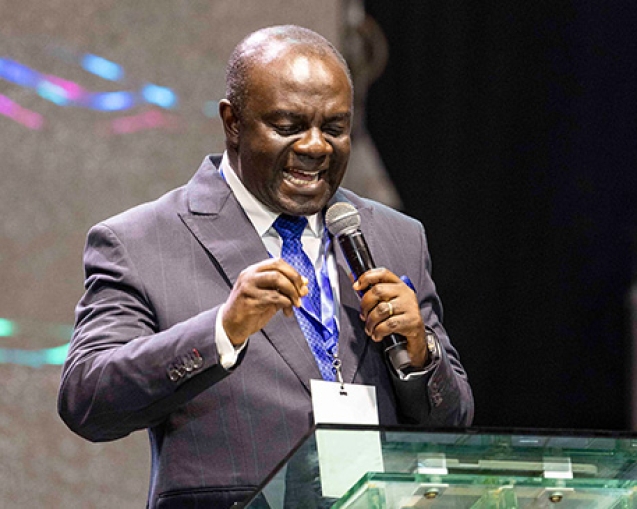The General Secretary of The Church of Pentecost, Apostle Alexander Nana Yaw Kumi-Larbi, has emphasised the importance of mentoring in the local church and called upon elders of the Church to emulate the mentoring model of Jesus Christ.
With The Church of Pentecost experiencing significant growth in membership and expanding its presence to numerous nations, Apostle Kumi-Larbi stressed the need for intentional mentoring, particularly among the youth, who comprise over 70% of the church’s members.
According to him, effective mentoring would play a vital role in the church’s efforts to reposition the local church for a greater societal impact.
Apostle Kumi-Larbi said this when he gave a presentation on the topic “Mentoring In The Local Church” today at the second edition of the Global Elders’ Retreat at the Pentecost Convention Centre (PCC), Gomoa Fetteh.
In his presentation, the General Secretary defined a mentor as a wise and trusted counsellor or teacher who guides and advises a younger or less experienced person over an extended period, especially in professional or educational settings.
Referring to Ephesians 4:11-13, Apostle Kumi-Larbi explained that it is the responsibility of Church leaders to equip God’s people for His work and to build up the body of Christ until everyone reaches maturity.
He described the Church’s leadership philosophy as “Grow your own timber and use it,” emphasising that every new convert, regardless of gender, possesses the potential to become a leader.
“Our leadership development starts at the grassroots level,” Apostle Kumi-Larbi stated, adding that mentors are crucial in transferring knowledge and experiences, helping the next generation avoid repeating past mistakes and making better decisions.
Touching on Jesus’ mentoring model, he said that the religious leaders at the time marvelled at the boldness and impact of Peter and John despite their lack of formal training. He said the fact that Jesus Himself had mentored them accounted for the transformation of the disciples.
Apostle Kumi-Larbi further highlighted Jesus’ relational approach to mentoring, where there is close interaction between mentors and mentees.
He encouraged church leaders to create room and avenues for mentees to be in close proximity to their mentors, allowing for intimate relationships and open communication.
He stressed the significance of leaders demonstrating the qualities they wish to impart, leading through their own actions and experiences.
He said that Jesus’ teaching was not limited to theory but manifested in His own life, providing a tangible example for His disciples to follow.
Using various methods such as parables, questions, and correction, Jesus taught His disciples about prayer, love, forgiveness, and leadership.
Apostle Kumi-Larbi encouraged church leaders to adopt similar teaching strategies, engaging in dialogue and providing practical guidance to help mentees develop their God-given graces and talents.
The General Secretary explained that Christian mentoring is a process based on submission to Christ, characterised by mutual sharing, trust, and enrichment.
He highlighted the mentor’s role as a model and trusted listener, relying on the Holy Spirit for insight and transformation.
He also mentioned Eli and Samuel (1 Samuel 1-4), Elijah and Elisha (2 Kings 19:19-21; 2 Kings 2:1-25), Barnabas and Paul, and Paul and Timothy, among others, as other biblical examples of how Christian mentoring can be effective and urged church leaders to prioritise mentoring within their congregations.
Apostle Kumi-Larbi identified the three phases of mentoring as the Parenthood Phase, where the mentor cares for and nurtures young Christians (mentees); the Pacesetting Phase, where the mentor models Christian maturity for the mentee to emulate; and the Partnering Phase, where the mentee becomes spiritually mature and is now viewed as a co-worker by the mentor.
The General Secretary was confident that if Christian mentoring is pursued intentionally at the local churches, many young members will become grounded in Christ, resulting in a more glorious Church in the future.
PENTECOST NEWS.


















